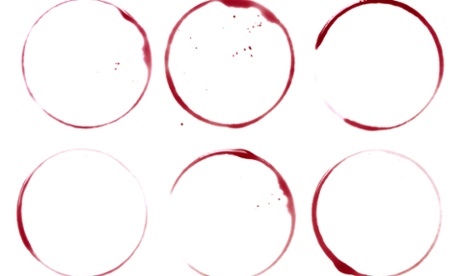My wife helped me get into AA, and it saved my life. Australia has a strong drinking culture, and its social acceptance has allowed us to forget alcohol’s harms

I haven’t had a drink for 35 years, but I am an alcoholic. I don’t feel the pull of drink like I used to, but I know if I was to have a drink, I couldn’t stop at one, or even several – I’d just drink until I was drunk. So I don’t.
Drink was all around me from day one. My father, a returned soldier, drank heavily and died from a heart attack at a young age – probably accelerated by his drinking. Growing up, I was simply surrounded by alcohol. It was part of the culture of where I came from. I began drinking when I was about 14 thanks to easy access to my father’s home brew. I started to build my life around alcohol and couldn’t understand how anyone could enjoy themselves without a drink.
Even my first home after marrying my wife Elaine was above a pub in Bellshill near Glasgow, Scotland. There was a pub across road from me, and my beloved “local” five minutes down the road. There were 13 drinking establishments in close proximity; my social life was governed by drinking.
I would be lying if I said I didn’t have some great times drinking – and sometimes I’d wake up the next day not remembering them. I did some very stupid things while drunk – like driving – that make me count my lucky stars that I’m even alive today.
Ironically, I thought I would come to Australia with my wife and young daughters to build a better life and reduce my reliance on drink. I soon realised the alcohol culture in Australia and Scotland was pretty similar. If you’re going to immigrate to Australia to become a teetotaller, it’s not the best pick.
I worked as a tradesman when I first arrived. We had very little money so I would turn up at work every day, even if I was drunk or hungover – I had no choice. A large proportion of my wages were spent on drink.
My wife would cover for my appalling behaviour. I could always justify and rationalise what was doing. The truth is, I was neglecting my family. Every move I made for work was underpinned by the problem. I even thought a move from the city to Muswellbrook would help me get away from the drink; you can’t escape – you just take your addiction with you.
Ultimately, I recognised I had a problem and told my wife that I needed help. She told me she had been attending Al-Anon to get support and advice as the spouse of an alcoholic. That was a shock to me. My wife helped me get into AA, and it saved my life. Without her help, I think I would probably be dead.
Going to AA made me realise that being an alcoholic doesn’t necessarily mean lying in the gutter. People can have great jobs, run businesses and appear fine to the outside world, but more often than not they are destroying their lives in fundamental ways.
I’m not a wowser by any means. Just because I can’t drink, doesn’t mean I have a problem with people drinking moderately around me. However, Australia does have a strong drinking culture and its social acceptance has allowed us to forget alcohol’s harms. Every public holiday, people hit the drink especially hard. It’s even difficult to get a non-alcoholic beverage at some functions.
The industry has got a long way to go in playing a responsible role – funding an independent body to run a few advertisements on responsible drinking is not enough. We need education, increased self-regulation, and an end to targeting kids in advertising.
It’s up to politicians to make sure it happens, but the alcohol industry is immensely powerful. Labor tried to put tax on alco pops, and that demonstrated the industry’s political and financial influence. When we’ve got these endemic cultural issues, such as alcohol abuse, getting a bi partisan approach makes it much easier. We’ve never been able to achieve that in this country. Try telling the spouse of an alcoholic that taking steps to protect society from alcohol abuse is a “nanny state”.
I’m not arguing for bans; that’s just not reasonable. I do think we need to have a national summit on alcohol – let’s explore the issues and have a proper debate. Labor has agreed to participate in that. Unfortunately, the prime minister has not.
Alcohol is such a fundamental part of so many Australian’s lives. Some handle it well. For some, it destroys their life. I don’t know exactly what the answers are, but I know we need more research and analysis into this issue. Whether it’s taxation, education, self-responsibility or cultural change, at least if we talk about it we can work toward some solutions. One of the proudest things in my life is that my kids have can’t remember me having a drink or being drunk.
Doug Cameron is a guest on tonight’s episode of Insight on SBS ONE at 8.30pm, which asks whether Australians are in denial about alcohol.
